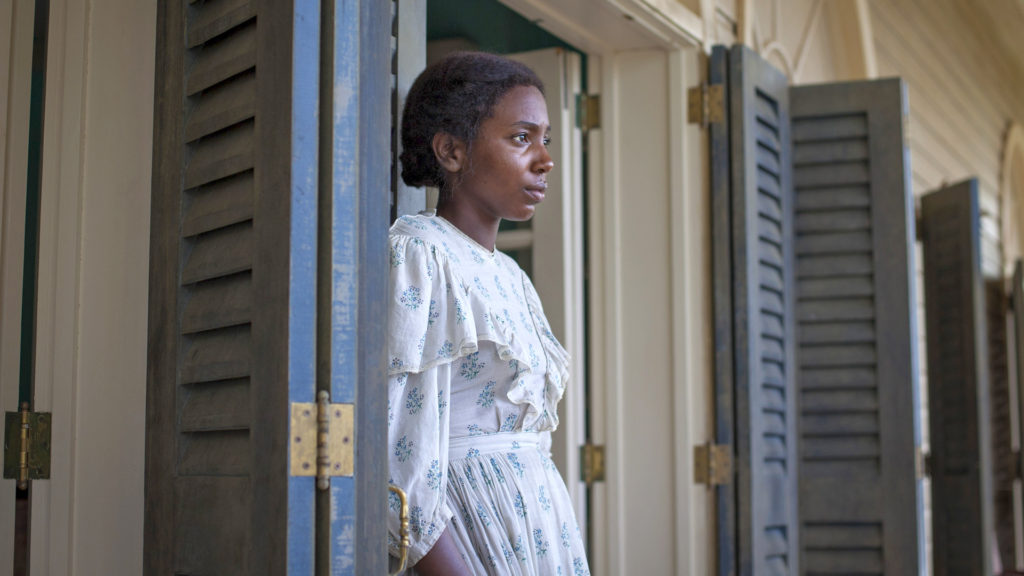Being stolen from her mother as a young girl, being renamed “Marguerite” against her will, and deciding whether having a child of her own is worth bringing another soul into bondage are just a few of the atrocities and indignities the enslaved July (Tamara Lawrance) must bear in “The Long Song.” Set during the final days of slavery in Jamaica, the three-part “Masterpiece” miniseries is a clear-eyed depiction of one of the most shameful chapters of history and the story of a headstrong, intelligent young woman.
Anchored by a star-making turn from Lawrance, “The Long Song” is based on Andrea Levy’s Walter Scott Prize-winning novel. It aired in the U.K. over two years ago, and it’s fitting that it’s making its U.S. debut now, on the heels of a year defined by widespread Black Lives Matters protests and a renewed push for racial equity. Those demonstrations have inspired many much-needed, long-time-coming conversations, including why it’s essential to reckon with the past rather than sweep it under the rug.
And “The Long Song” does want us to reckon with July’s story — in all of its beauty, pain, joy, and heartbreak. Director Mahalia Belo and screenwriter Sarah Williams are upfront about the brutality that July and her fellow enslaved people endure, but also respect them enough to portray them as more than one-dimensional tragic figures. Whenever they can, however they can, July and her peers resist and undermine the monstrous mistress (Hayley Atwell), even though they know full well any victory will be short-lived. These characters flirt, tease, celebrate, and get frustrated. They are annoyed but unsurprised when, once slavery has finally ended, the Queen offers money and support to the former slave owners but nothing to the formerly enslaved. July and the other plantation workers remain resilient because, to be frank, there’s no better option.
With an arched eyebrow and smirk to mask the horrors she’s survived, July guides us through the events of “The Long Song,” simultaneously presenting the sickening realities of slavery and allowing us to get to know the confident, funny, brave person she is. She is fictional, but there were millions like her who never got the chance to share their stories. The show doesn’t let us forget that. If we are ever going to make a more equitable future, it suggests, we must remember and acknowledge the lives and experiences of the Julys of the past.
“The Long Song” premieres January 31 on PBS.







